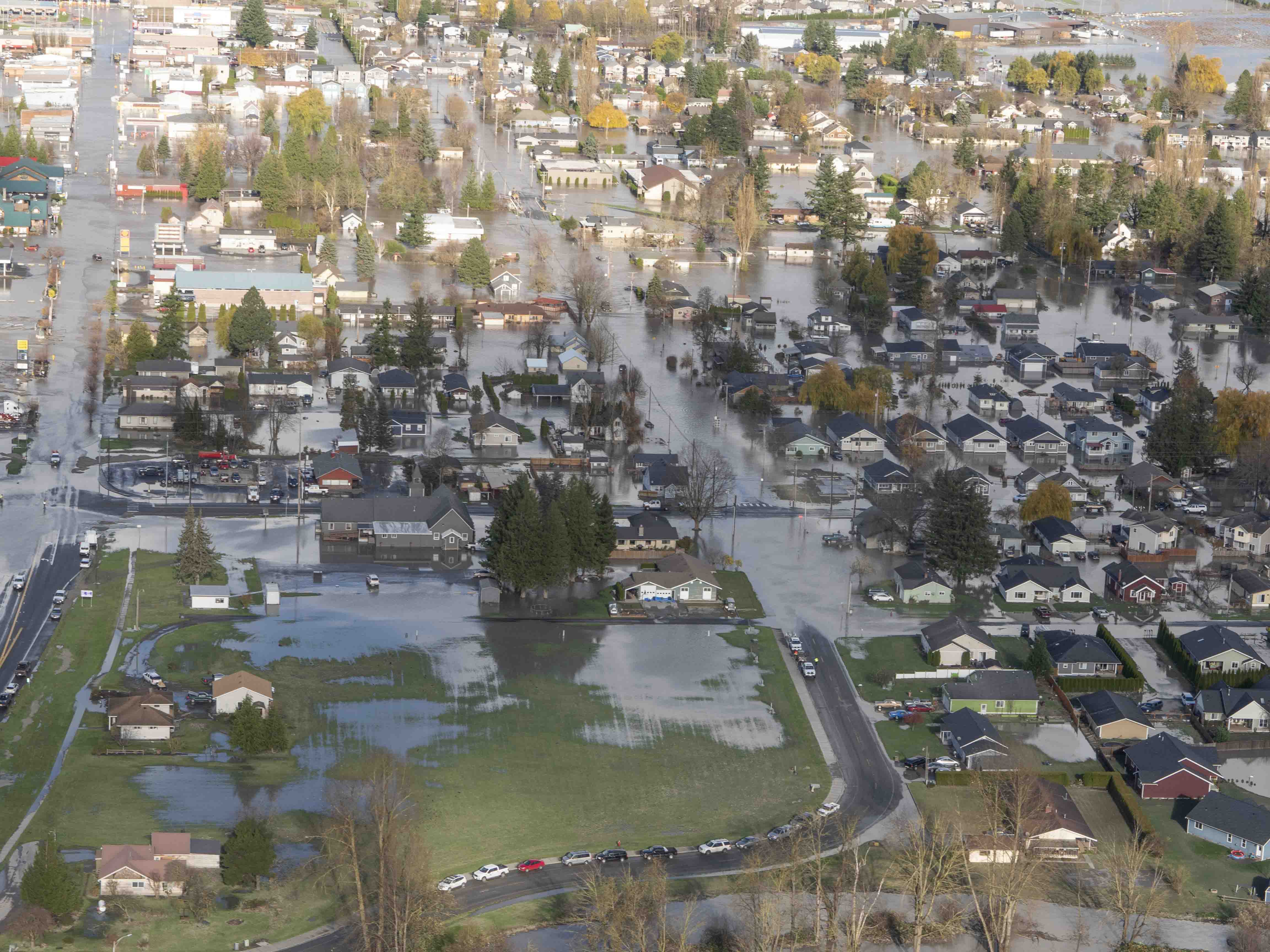Whatcom County’s recent floods illustrated the vulnerability of small, rural businesses when disaster strikes, says CJ Seitz, ‘93, B.A., accounting and ‘06, MBA, director of the WWU Small Business Development Center.
Seitz co-led Whatcom County’s Business Recovery Task Force following devastating floods in November 2021. The Nooksack River, swollen by heavy rains, inundated the communities of Everson, Nooksack and Sumas, along with parts of Lynden, Ferndale and Lummi Nation, in the largest natural disaster since the county was established in 1854.
More than $50 million in damage was reported, including in about 1,800 homes. In Sumas alone, more than 75 percent of homes were flooded.
While individuals are often eligible for federal disaster recovery assistance, businesses typically must rely on their own insurance to cover their losses. According to data compiled by the Business Recovery Task Force, Whatcom County businesses suffered more than $15 million in uninsured damages to buildings and inventory—a steep toll for small, rural businesses already struggling because of the global pandemic. Small businesses help define the character of each town, so preserving them is vital, Seitz says.
The Business Recovery Task Force, co-led by Port of Bellingham Economic Development Director Don Goldberg, includes mayors and other leaders of tribes, city, county, state and federal agencies, along with the Whatcom Community Foundation.
The group shared data on local business losses with Washington State Rep. Alicia Rule of Blaine, whose HB 1957 proposes a small business disaster recovery financial assistance program. The bill passed the State House in early February. Short-term funding for small businesses, such as bridge loans or grants, could get crucial services returned more quickly to help rural communities bounce back from natural disasters more easily, Seitz says. Meanwhile, advisers at the SBDC work with business owners to help them prepare and execute recovery plans.
Seitz hopes a state-funded small business disaster recovery program will help not only Whatcom County businesses, but small businesses in the next communities hit by natural disasters.
